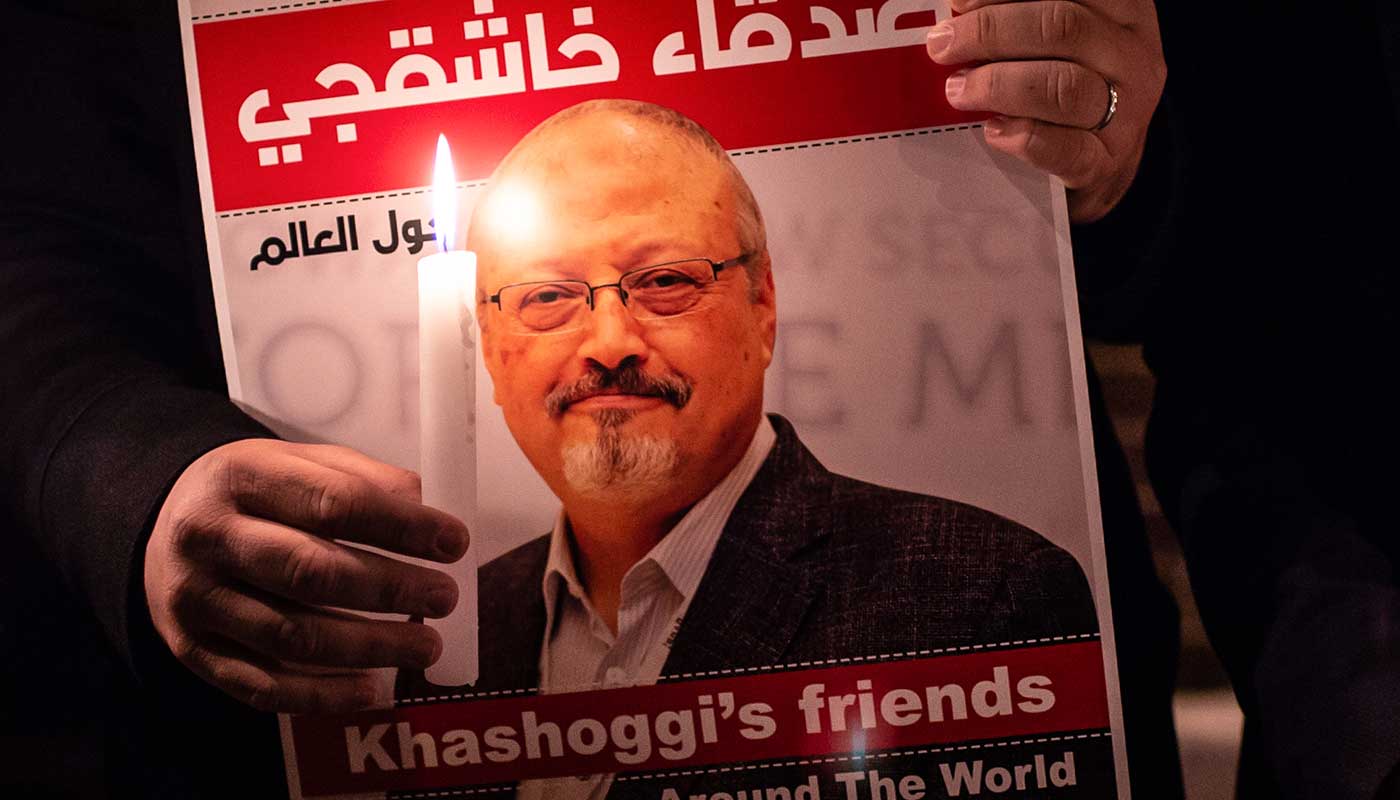Jamal Khashoggi’s murder: one year on
Khashoggi was killed by members of the regime he criticised


A free daily email with the biggest news stories of the day – and the best features from TheWeek.com
You are now subscribed
Your newsletter sign-up was successful
The brutal murder of Washington Post journalist and US resident Jamal Khashoggi on 2 October 2018 sent shockwaves around the world.
Yesterday, vigils were held for the anniversary of his death.
Khashoggi - or the “animal to be sacrificed”, as his killers allegedly called him as they waited for him to walk inside the Saudi Arabian consulate in Istanbul - was said to be sedated and suffocated while his fiancée waited outside. His body, reportedly dismembered by electric saw and removed in five suitcases, has never been produced for burial.
The Week
Escape your echo chamber. Get the facts behind the news, plus analysis from multiple perspectives.

Sign up for The Week's Free Newsletters
From our morning news briefing to a weekly Good News Newsletter, get the best of The Week delivered directly to your inbox.
From our morning news briefing to a weekly Good News Newsletter, get the best of The Week delivered directly to your inbox.
Just as it did a year ago, Khashoggi's cold-blooded killing sheds light on a glaring contradiction at the heart of Crown Prince Mohammad bin Salman’s Saudi Arabia. The new regime that launched a finely choreographed international PR campaign lauding its steps to modernise - liberating women and reducing religious stricture - is also a regime that ruthlessly silences dissent and wages eviscerating proxy wars in downtrodden neighbouring lands.
Who has been punished?
To this day, Saudi’s de facto ruler - MBS, as he is known - denies having ordered, or having had any prior knowledge of, the assasination. In an interview with CBS’s 60 Minutes on Sunday, the crown prince did accept what he called “full responsibility”.
Asked directly if he had ordered the killing, however, he replied “absolutely not”, before proceeding to supply a more abstract mea culpa. “This was a heinous crime... when a crime is committed against a Saudi citizen by officials working for the Saudi government, as a leader I must take responsibility,” he said. “This was a mistake, and I must take all actions to avoid such a thing in the future.”
A free daily email with the biggest news stories of the day – and the best features from TheWeek.com
Authorities in Riyadh have put 11 people on trial in connection with the killing, but proceedings have been shrouded in secrecy. Five face the death penalty, but their names have never been published.
Agnes Callamard, the UN’s special rapporteur on Khashoggi's death, concluded that “Khashoggi has been the victim of a deliberate, premeditated execution, an extrajudicial killing for which the state of Saudi Arabia is responsible under international human rights law”.
While the UN report did not find any direct evidence of involvement from the crown prince himself, investigators found it “inconceivable”, given the scale of the operation and nature of the pyramid of command, that Salman was not aware that a “mission of a criminal nature, directed at Mr. Khashoggi, was being launched”.
Memorial vigils were held across the world this week. Yesterday, at the site of his murder in Istanbul (the Saudi consulate where he was killed has since been decommissioned), Washington Post owner Jeff Bezos was in attendance.
What next for Saudi Arabia?
“MBS wants to pre-empt a repetition of the downfall of the earlier [Saudi] states due to familial infighting, internal malaise, external frailty and failure to modernize,” according to analysis from Politico.
It notes that Salman is determined for Saudi Arabia “to become a more forceful regional power that is economically diversified and a member of the trillion-dollar GDP club, while growing more socially tolerant, culturally creative and reconciled with the world. And he believes he needs full authority to pull off this audacious effort.”
In pursuit of this full authority, Salman’s attempts to control his new fiefdom have been very much carrot-and-stick. Despite his public efforts to modernise women’s rights and religious orthodoxy (he even officially condoned entertainment), in the year after assuming control of the state, Salman also led a crackdown on dissent.
–––––––––––––––––––––––––––––––For a round-up of the most important stories from around the world - and a concise, refreshing and balanced take on the week’s news agenda - try The Week magazine. Get your first six issues free–––––––––––––––––––––––––––––––
According to Human Rights Watch, “Khashoggi’s murder took place amid successive waves of arrests of Saudi dissidents, clerics, journalists, intellectuals, businesspeople, royal family members, and women’s rights activists after bin Salman became crown prince in July 2017. The authorities have subjected many of them to unfair trials, and some have alleged that authorities tortured them in detention.”
Still today, “Saudi authorities are doubling down on repression and continuing to silence independent Saudi voices that Khashoggi sought to defend,” HRW continues.
Callamard, the UN investigator, believes the furore over Khashoggi continues to weigh on Saudi authorities. “The fact that the killing of Jamal Khashoggi is still making the news, that needs to continue, because that’s what is going to annoy the hell out of them and be the mosquito in the tent that they can’t ever get rid of,” she said.
William Gritten is a London-born, New York-based strategist and writer focusing on politics and international affairs.
